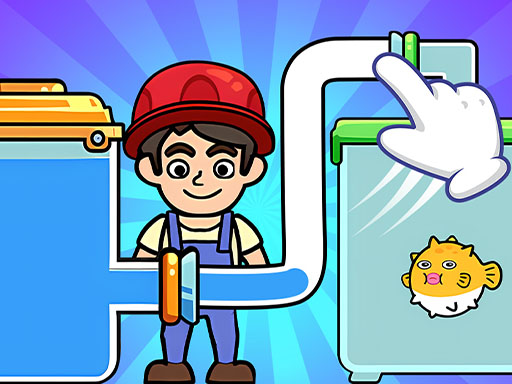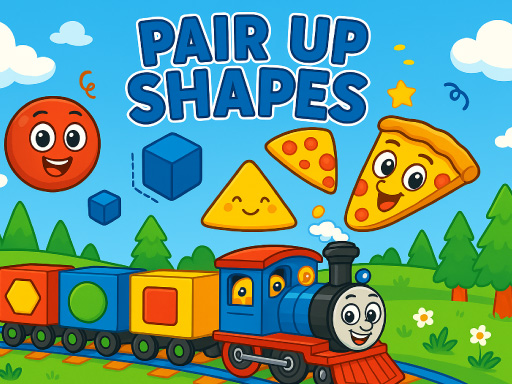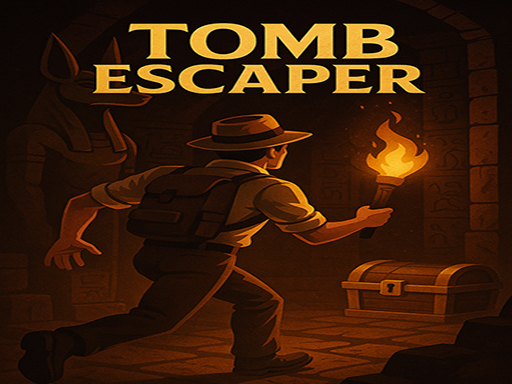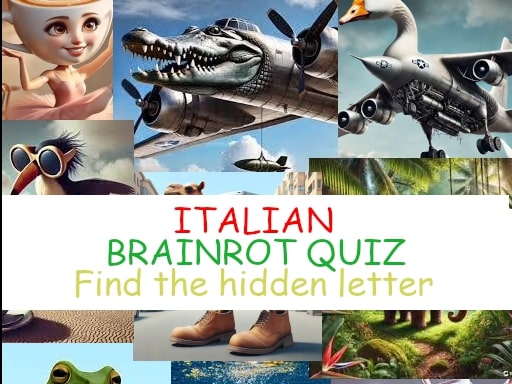Crisis Dispatch Puzzle
About Crisis Dispatch Puzzle
Okay, so listen, I’ve stumbled onto something truly special, a game that’s just… it’s been living rent-free in my head for weeks now, and I absolutely *have* to tell you about it. You know how I’m always on the hunt for those unique experiences, the ones that don’t just offer a challenge but actually make you *feel* something? Well, I found it. It’s called *Crisis Dispatch Puzzle*, and honestly, it’s a total game-changer.
I mean, when I first heard the premise, I was intrigued but a little skeptical, right? You’re basically a 911 dispatcher. On the surface, it sounds simple: answer calls, send help. But oh my god, it is so much more than that. It’s like, the developers somehow bottled that intense, split-second decision-making pressure you see in movies and turned it into this incredibly engaging, almost meditative puzzle experience.
What I love about games like this is how they put you directly into a role with real stakes, even if they’re virtual. And *Crisis Dispatch Puzzle* nails it. You’re not just clicking buttons; you’re listening. You’re interpreting. You’re trying to read between the lines of a panicked, sometimes incoherent, voice on the other end of the line. The game starts you off, and you immediately feel the weight of the headset, even though it’s not physically there. You hear that distinct ring, a sound that quickly becomes synonymous with immediate, high-stakes urgency. Your heart actually starts to pound a little, I swear.
The calls themselves are where the magic truly happens. It’s not just a generic "fire call" or "medical emergency." Each one is a mini-narrative, a tiny, unfolding drama. You might get a frantic parent whispering about a child who’s stopped breathing, and you can almost hear the tremor in their voice, the desperation. Or you might get a surprisingly calm voice reporting a strange smell from their neighbor’s apartment, but there’s an underlying tension, a slight hesitation that makes you wonder if there’s more to it. Then there are the obvious ones, the ones where someone is clearly screaming about a car crash, and you know instantly what needs to be done. But even those have their nuances – is it just medical, or is there a downed power line requiring fire? Is there a dispute that needs police involvement?
You’re constantly evaluating, constantly second-guessing yourself. Is this a genuine emergency, or is it a prank? Is it someone having a bad day, or is it a real threat? You hear the sound of a distant siren, the static on the line, the background noise from the caller's location – a dog barking, a baby crying, the muffled sound of a TV – and all of it feeds into your decision. It’s like being a detective with only audio clues. You're trying to piece together the full picture from fragments, and the clock is always ticking.
The brilliant thing about this is how it manages to make every single decision feel incredibly impactful. You have four options: fire crew, police, medical team, or no help needed. And each choice carries consequences. Send the fire department to a false alarm, and you get penalized – resources wasted, a crew pulled away from a potential *real* emergency. Fail to send medical to someone genuinely in distress, and… well, you can imagine the outcome. The game doesn’t shy away from making you feel that responsibility. When you get a call right, when you hear the "situation resolved" notification and see the "lives saved" counter tick up, there’s this incredible surge of satisfaction, a genuine feeling of having done something good. But when you make a mistake, especially a critical one, it’s a gut punch. You learn from it, though. You start to pick up on subtle cues, on voice inflections, on the specific phrasing callers use. It’s a masterclass in pattern recognition under pressure.
I mean, honestly, I’ve always been drawn to games that challenge my critical thinking, games like *Papers, Please* where every interaction has weight, but *Crisis Dispatch Puzzle* adds this layer of raw, human urgency that just elevates it. You're not just processing documents; you're dealing with people's worst moments. The game doesn't explicitly show you the outcome of a wrong decision in a graphic way, but your mind fills in the blanks, and that's often more powerful. You know you messed up, and that feeling drives you to do better next time.
You'll find yourself leaning forward in your chair, eyes narrowed, almost trying to physically *see* the caller through their voice. Sometimes you get a call that seems straightforward, like a minor fender bender, but then the caller casually mentions someone acting erratically at the scene, and suddenly you're thinking, "Wait, is this just a traffic accident, or is it a public disturbance? Do I need police *and* medical?" The complexity scales so naturally. As you get promoted to higher ranks – which feels incredibly rewarding, by the way, that little badge icon appearing with a satisfying chime – the calls become more intricate, the stakes even higher. You might have multiple incidents unfolding simultaneously, forcing you to prioritize, to make snap judgments about which emergency needs immediate attention and which can wait a precious few seconds.
The game does an incredible job of building tension without relying on jump scares or overt action. The tension comes from the unknown, from the constant threat of making the wrong choice. It’s a different kind of adrenaline rush, a mental one. You’re not dodging bullets; you’re dodging regret. And when you manage to string together a perfect run of calls, dispatching exactly the right services, avoiding all false alarms, and saving every virtual life, there’s this profound sense of accomplishment. It’s not just a high score; it’s a testament to your ability to remain calm and decisive under pressure.
There's something magical about how this game makes you feel like a genuine hero, even within its minimalist interface. It’s not about flashy graphics; it’s about the narrative you create in your head, the stories you infer from those desperate voices. You start to feel a real connection to the city you're protecting, even though you never see its streets. You feel responsible for its well-being. And that, to me, is the hallmark of truly brilliant game design – when the mechanics melt away, and you're left with pure immersion and emotional engagement.
Just wait until you encounter the calls where the situation changes mid-conversation, or where the caller is clearly withholding information. Those are the real brain-teasers, the ones that make you pause, take a deep breath, and really think through every possible angle. It’s a puzzle game, absolutely, but it’s a puzzle with a beating heart, with human lives hanging in the balance. It’s not just about finding the right solution; it’s about making the *right* decision, ethically and practically. And that’s why I can’t stop playing it. It’s addictive, it’s challenging, and it makes you think in ways few other games do. You absolutely have to check it out. Seriously, you won't regret it.
I mean, when I first heard the premise, I was intrigued but a little skeptical, right? You’re basically a 911 dispatcher. On the surface, it sounds simple: answer calls, send help. But oh my god, it is so much more than that. It’s like, the developers somehow bottled that intense, split-second decision-making pressure you see in movies and turned it into this incredibly engaging, almost meditative puzzle experience.
What I love about games like this is how they put you directly into a role with real stakes, even if they’re virtual. And *Crisis Dispatch Puzzle* nails it. You’re not just clicking buttons; you’re listening. You’re interpreting. You’re trying to read between the lines of a panicked, sometimes incoherent, voice on the other end of the line. The game starts you off, and you immediately feel the weight of the headset, even though it’s not physically there. You hear that distinct ring, a sound that quickly becomes synonymous with immediate, high-stakes urgency. Your heart actually starts to pound a little, I swear.
The calls themselves are where the magic truly happens. It’s not just a generic "fire call" or "medical emergency." Each one is a mini-narrative, a tiny, unfolding drama. You might get a frantic parent whispering about a child who’s stopped breathing, and you can almost hear the tremor in their voice, the desperation. Or you might get a surprisingly calm voice reporting a strange smell from their neighbor’s apartment, but there’s an underlying tension, a slight hesitation that makes you wonder if there’s more to it. Then there are the obvious ones, the ones where someone is clearly screaming about a car crash, and you know instantly what needs to be done. But even those have their nuances – is it just medical, or is there a downed power line requiring fire? Is there a dispute that needs police involvement?
You’re constantly evaluating, constantly second-guessing yourself. Is this a genuine emergency, or is it a prank? Is it someone having a bad day, or is it a real threat? You hear the sound of a distant siren, the static on the line, the background noise from the caller's location – a dog barking, a baby crying, the muffled sound of a TV – and all of it feeds into your decision. It’s like being a detective with only audio clues. You're trying to piece together the full picture from fragments, and the clock is always ticking.
The brilliant thing about this is how it manages to make every single decision feel incredibly impactful. You have four options: fire crew, police, medical team, or no help needed. And each choice carries consequences. Send the fire department to a false alarm, and you get penalized – resources wasted, a crew pulled away from a potential *real* emergency. Fail to send medical to someone genuinely in distress, and… well, you can imagine the outcome. The game doesn’t shy away from making you feel that responsibility. When you get a call right, when you hear the "situation resolved" notification and see the "lives saved" counter tick up, there’s this incredible surge of satisfaction, a genuine feeling of having done something good. But when you make a mistake, especially a critical one, it’s a gut punch. You learn from it, though. You start to pick up on subtle cues, on voice inflections, on the specific phrasing callers use. It’s a masterclass in pattern recognition under pressure.
I mean, honestly, I’ve always been drawn to games that challenge my critical thinking, games like *Papers, Please* where every interaction has weight, but *Crisis Dispatch Puzzle* adds this layer of raw, human urgency that just elevates it. You're not just processing documents; you're dealing with people's worst moments. The game doesn't explicitly show you the outcome of a wrong decision in a graphic way, but your mind fills in the blanks, and that's often more powerful. You know you messed up, and that feeling drives you to do better next time.
You'll find yourself leaning forward in your chair, eyes narrowed, almost trying to physically *see* the caller through their voice. Sometimes you get a call that seems straightforward, like a minor fender bender, but then the caller casually mentions someone acting erratically at the scene, and suddenly you're thinking, "Wait, is this just a traffic accident, or is it a public disturbance? Do I need police *and* medical?" The complexity scales so naturally. As you get promoted to higher ranks – which feels incredibly rewarding, by the way, that little badge icon appearing with a satisfying chime – the calls become more intricate, the stakes even higher. You might have multiple incidents unfolding simultaneously, forcing you to prioritize, to make snap judgments about which emergency needs immediate attention and which can wait a precious few seconds.
The game does an incredible job of building tension without relying on jump scares or overt action. The tension comes from the unknown, from the constant threat of making the wrong choice. It’s a different kind of adrenaline rush, a mental one. You’re not dodging bullets; you’re dodging regret. And when you manage to string together a perfect run of calls, dispatching exactly the right services, avoiding all false alarms, and saving every virtual life, there’s this profound sense of accomplishment. It’s not just a high score; it’s a testament to your ability to remain calm and decisive under pressure.
There's something magical about how this game makes you feel like a genuine hero, even within its minimalist interface. It’s not about flashy graphics; it’s about the narrative you create in your head, the stories you infer from those desperate voices. You start to feel a real connection to the city you're protecting, even though you never see its streets. You feel responsible for its well-being. And that, to me, is the hallmark of truly brilliant game design – when the mechanics melt away, and you're left with pure immersion and emotional engagement.
Just wait until you encounter the calls where the situation changes mid-conversation, or where the caller is clearly withholding information. Those are the real brain-teasers, the ones that make you pause, take a deep breath, and really think through every possible angle. It’s a puzzle game, absolutely, but it’s a puzzle with a beating heart, with human lives hanging in the balance. It’s not just about finding the right solution; it’s about making the *right* decision, ethically and practically. And that’s why I can’t stop playing it. It’s addictive, it’s challenging, and it makes you think in ways few other games do. You absolutely have to check it out. Seriously, you won't regret it.
Enjoy playing Crisis Dispatch Puzzle online for free on Coduxa. This Puzzle game offers amazing gameplay and stunning graphics. No downloads required, play directly in your browser!
How to Play
Tap or click to answer the call Choose the correct response to dispatch the right help mdash or none if its not needed





Comments
This game is awesome! I love the graphics and gameplay.
One of the best games I've played recently. Highly recommended!